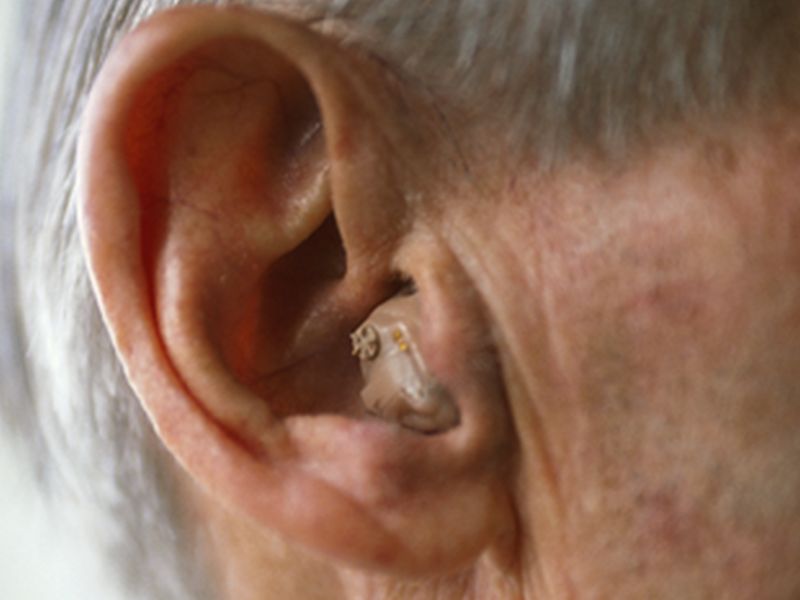By Alan Mozes
HealthDay Reporter

TUESDAY, Jan. 8, 2019 (HealthDay News) -- If you're poor, you'll likely have less success with your hearing aid, a new study finds.
A survey of more than 1,100 Medicare recipients with hearing aids found that 27 percent of low-income users still had a lot of trouble hearing. That compared with just 11 percent of the wealthiest users.
The reason, the study authors suggested, is that poorer seniors have insufficient access to ongoing care to keep the devices functioning properly.
While 42 percent of the wealthiest hearing aid patients sought out expert audiology advice each year, only about 30 percent of the poorest users did so, the study found.
"As Medicare does not cover hearing aids or hearing care services, beneficiaries must therefore pay for them out of pocket," said study lead author Amber Willink. "The cost of these services is a significant barrier to access, particularly for low-income beneficiaries."
But even for patients of means, "the value of hearing care services is not widely known or appreciated," said Willink, an assistant scientist at the Johns Hopkins Bloomberg School of Public Health in Baltimore.
Given the complexity of hearing aid use, hearing care services provide "a necessary value-add." They offer proper fitting and device customization as well as ongoing maintenance and counseling to ensure continued use, she explained.
Two-thirds of Americans over the age of 70 have some degree of hearing loss, which affects their quality of life, the researchers noted. But most don't use hearing aids, often because of the price.
Willink's team pegs the expense at about $2,000 for a single unit. But a study published last July placed the overall figure at about $7,000. That report, led by Dr. Michael McKee of the University of Michigan, suggested that high prices (alongside hearing loss shame) keep many seniors from seeking hearing devices.
Some low-income seniors can obtain partial Medicaid coverage, but it's only available in 28 states, the researchers reported.
The situation might ease somewhat in 2020 when a new law takes effect allowing consumers to buy hearing aids directly from approved manufacturers instead of an audiologist or licensed dispenser.
However, while hearing aids may become more affordable, McKee cautioned that "this may also exacerbate hearing health disparities among those who can't afford them in the first place, or may not be as technologically savvy as others."
It will be important for audiologists to help guide consumers on these choices, he said.
Jackie Clark, past president of the American Academy of Audiology, said that getting Medicare to cover costs in full would go a long way to ensuring that those at all income levels get the devices and continuous care they need.
"It would certainly be a whole new ballgame if Medicare would cover hearing aids," said Clark, who is also a clinical professor at the University of Texas at Dallas.
Willink and her colleagues also suggested that the federal government expand Medicare and/or Medicaid coverage of hearing care services.
But with or without such a major funding change, Clark said hearing aid users must be educated about the importance of regular consultations.
The audiologist is critical in determining what technology is best, and knowing how to program the device to ensure optimal performance, she explained.
Study participants were aged 65 and older, and drawn from a 2013 survey pool of nearly 9,100 Medicare recipients.
The report was published in the January issue of Health Affairs.
More information
Get the lowdown on hearing aids at the U.S. National Institutes of Health.
Back

The news stories provided in Health News and our Health-E News Newsletter are a service of the nationally syndicated HealthDay® news and information company. Stories refer to national trends and breaking health news, and are not necessarily indicative of or always supported by our facility and providers. This information is provided for informational and educational purposes only, and is not intended to be a substitute for medical advice, diagnosis, or treatment.






